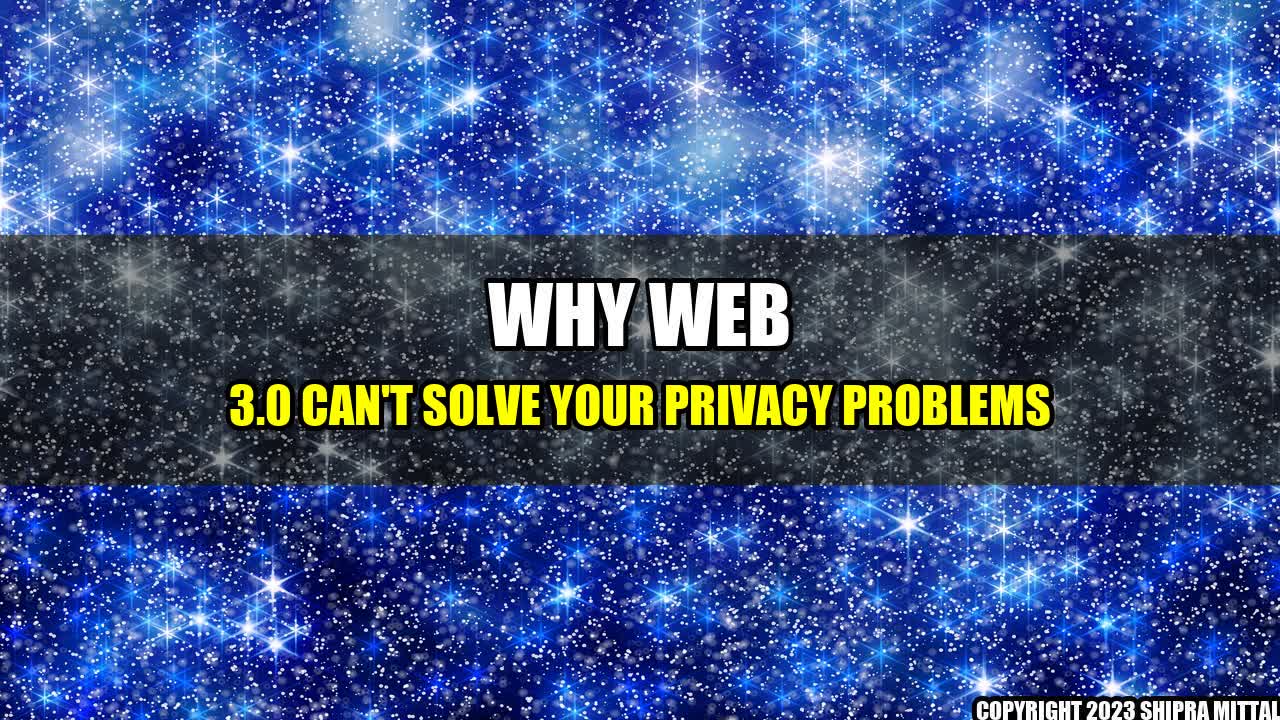An Eye-Opening Story
Imagine this scenario: You're browsing through your Facebook feed and see an ad for a product you were just talking about with a friend. You haven't searched for it online, but suddenly it's popping up on your social media. Coincidence? Maybe not.
As we become more connected and reliant on technology, our online privacy is becoming increasingly threatened. Despite the promises of Web 3.0, there are still major concerns about our personal information being sold, tracked, and used without our knowledge or consent.
Real Life Examples
Facebook's Cambridge Analytica scandal, in which millions of users' data was harvested without their permission, is a prime example of how our privacy can be violated online. Another example is the recent hack of credit-reporting agency Equifax, which exposed the personal information of over 145 million people.
Companies like Google, Amazon, and Apple also collect massive amounts of data on their users, often without their explicit consent. This data is then used to target ads, personalize content, and sell to third-party advertisers.
Despite our knowledge of these privacy violations, we still continue to use these services because they're convenient and provide value in our daily lives.
Conclusion
Web 3.0 may offer some advancements in privacy, such as decentralized platforms that give users more control over their data. However, this technology is still in its early stages and there are no guarantees that our privacy will be fully protected.
We must continue to advocate for stronger privacy protections and be cautious about the data we share online. Until companies prioritize user privacy over profits, we cannot fully rely on technology to solve our privacy problems.
In summary: Web 3.0 is not a silver bullet for online privacy; real-life examples such as Facebook's Cambridge Analytica scandal and Equifax's data breach show the ongoing concern about data privacy violations; we need to be cautious and advocate for stronger privacy protections until companies prioritize user privacy.

Akash Mittal Tech Article
Share on Twitter Share on LinkedIn